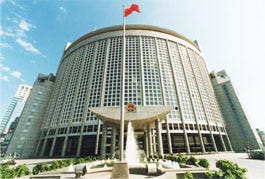On February 24, 2024, the Ministry of Foreign Affairs of the People’s Republic of China issued a statement, “China’s Position on the Political Settlement of the Ukraine Crisis,” which can be found on the Website of China’s Ministry of Foreign Affairs.
More than a peace proposal for Ukraine, the Chinese document affirms principles that ought to guide the conduct of nations in the international community. Such principles have been repeatedly reiterated by China and by the governments of the Third World since the 1950s, and they stand in opposition to the practices of U.S. and Western imperialism.
Said principles, as formulated in China’s statement, include respect for the sovereignty of all countries, be they big or small, strong or weak, rich or poor. All are equal members of the international community. I would like to note that this has been a long-standing principle of the Non-Aligned Movement, today affirmed by its 120 members nat…



